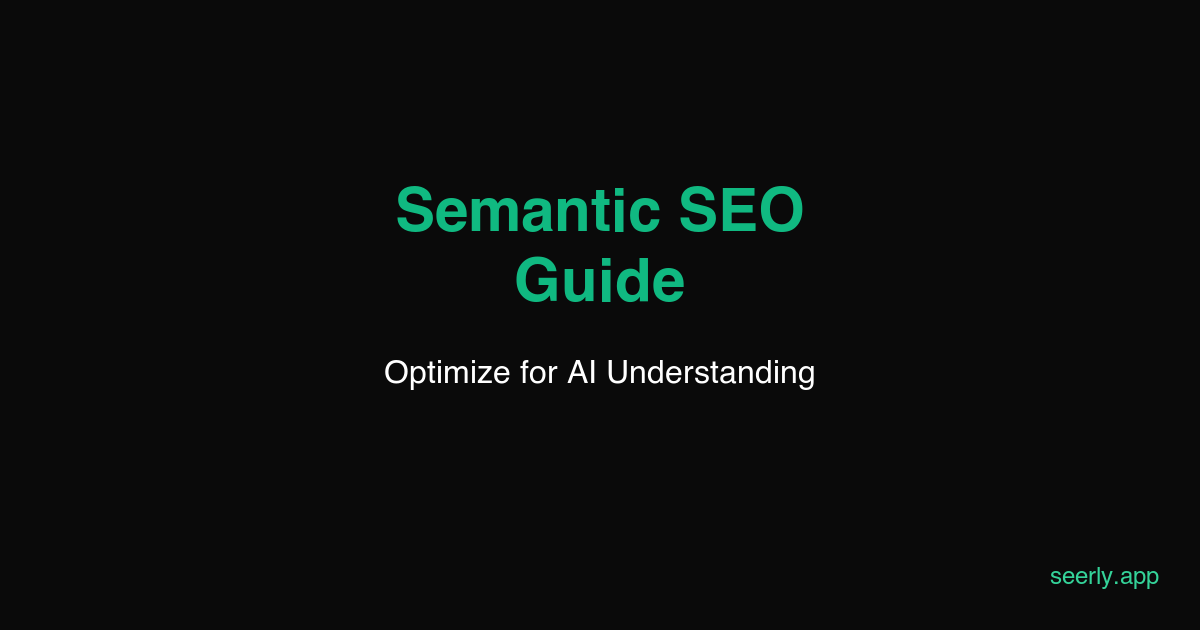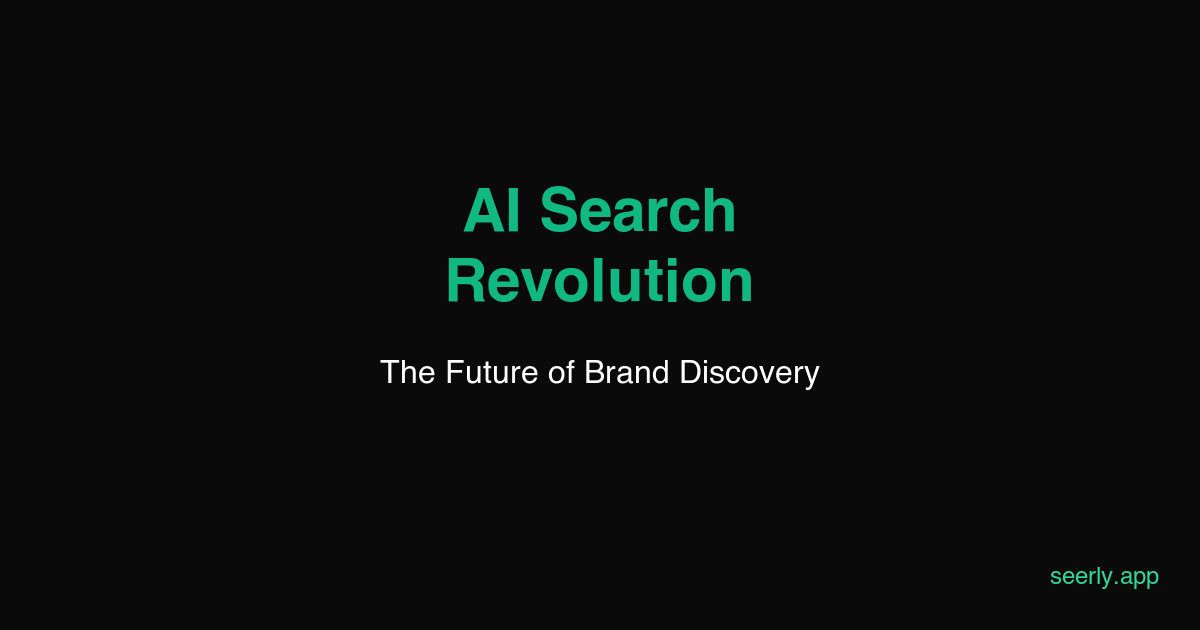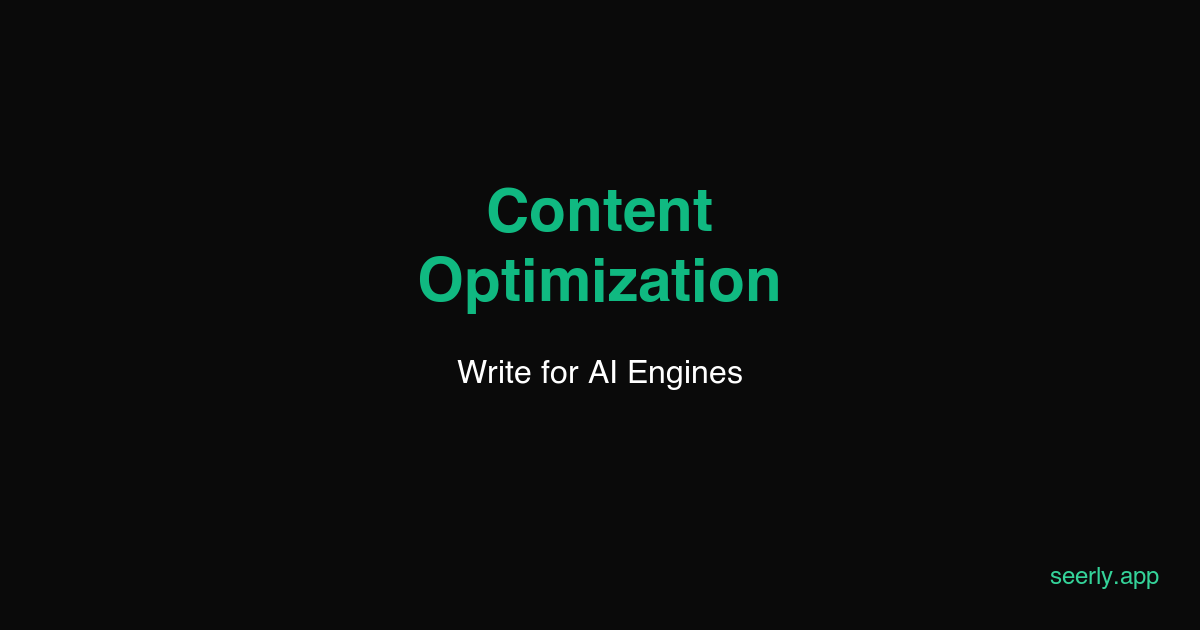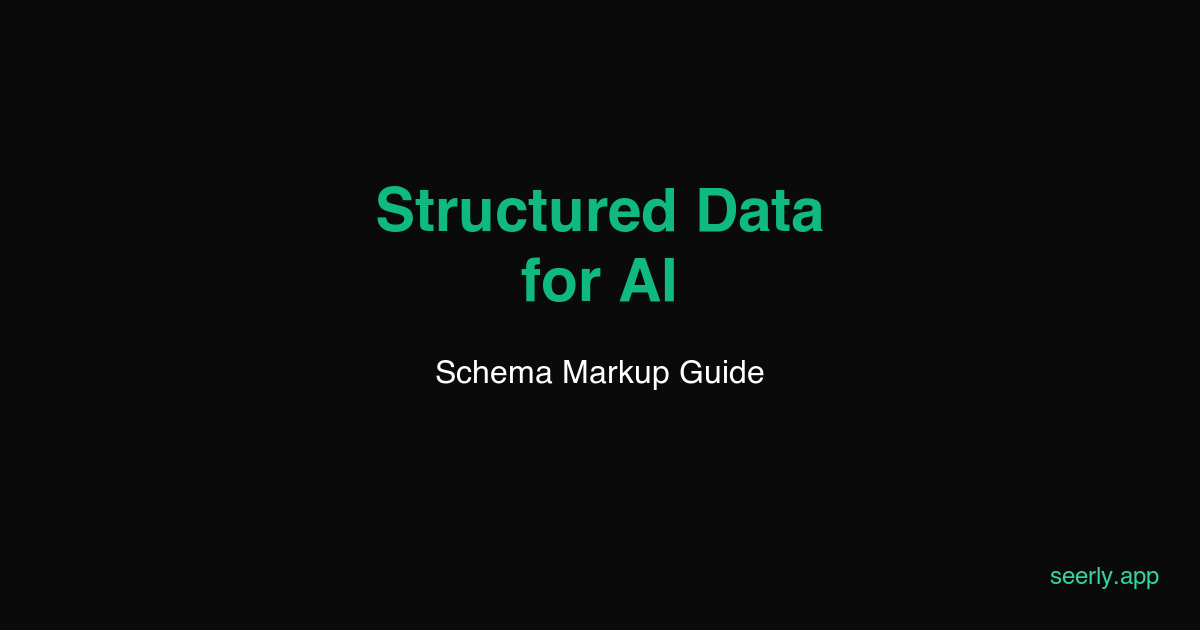Semantic SEO: Moving Beyond Keywords in the AI Era

I remember the early days of SEO when we'd sit around counting how many times we could stuff "best running shoes" into a 300-word article without making it completely unreadable. We'd hit 5% keyword density and call it optimized. Looking back, it's almost embarrassing how mechanical the whole process was.
The thing is, it worked. Search engines were relatively simple pattern-matching machines, and if you played the game right, you could rank for almost anything regardless of whether your content actually helped anyone.
Those days are gone, and honestly, good riddance. Modern search engines, especially with AI integration, don't just match words anymore. They understand meaning, context, and intent in ways that make keyword stuffing not just ineffective, but actively harmful to your rankings.
Welcome to the era of semantic SEO, where what you mean matters more than what words you use.
What Semantic Actually Means
Let's start with a simple example. If I write "Apple released a new product yesterday," what am I talking about? The fruit company? The tech giant? A record label from the 1960s?
You, as a human reader, probably assumed I meant the tech company because that's the most common context for "Apple" and "new product" appearing together. You didn't need me to write "Apple Inc., the technology company founded by Steve Jobs," because your brain automatically filled in the context.
That's semantic understanding. It's the ability to grasp meaning from context rather than just matching literal words. And search engines have gotten remarkably good at it.
When someone searches for "best running shoes for marathons," they're not literally looking for pages that contain those exact words in that exact order. They want comprehensive information about marathon running, shoe technology, fit considerations, expert recommendations, and probably some reviews from actual marathon runners. The query is shorthand for a much deeper information need.
Semantic SEO is about addressing that deeper need, not just the surface-level keywords.
Why AI Changes Everything
Traditional search engines got better at semantic understanding gradually over the years, but AI has accelerated this to a whole new level. Large language models like GPT-4, Claude, and Gemini don't work with keywords at all. They work with meaning.
These systems understand that "automobile," "car," and "vehicle" aren't just synonyms to swap around for keyword variety. They represent related but distinct concepts that might be used in different contexts. They know that "bank" in a finance article is different from "bank" in a geography article about rivers. They can distinguish between Apple the company, apple the fruit, and Apple Records without any explicit labeling.
More importantly, they understand relationships between concepts. They know that marathon training relates to nutrition, recovery, injury prevention, and proper footwear. They can infer that someone interested in marathon running might also care about hydration strategies, even if they didn't explicitly mention it.
This level of understanding means you can't game the system with keyword tricks. The AI sees through it immediately. But it also means that genuinely helpful, comprehensive content gets recognized and rewarded in ways that were impossible before.
Building Real Topical Authority
Here's where semantic SEO gets interesting. Instead of targeting individual keywords, you're building authority around entire topics and concept clusters.
Let me give you a real example. Say you run a site about coffee. In the old SEO world, you'd write separate articles targeting "best coffee beans," "how to brew coffee," "coffee maker reviews," and so on, each optimized for its specific keyword.
In the semantic SEO world, you think about coffee holistically. You create content that covers the entire landscape: the origins and varieties of beans, roasting techniques, brewing methods, equipment comparisons, taste profiles, serving suggestions, the science of extraction, and the cultural significance of coffee around the world.
These aren't separate keyword-targeted articles. They're interconnected pieces that link to each other naturally, reference related concepts, and demonstrate deep knowledge of the entire domain. When you write about brewing methods, you naturally reference the characteristics of different beans that make certain methods work better. When you discuss equipment, you explain the science of why it matters.
This interconnected web of content signals to search engines and AI systems that you're not just trying to rank for keywords. You actually know what you're talking about.
The Power of Natural Language
One of the most freeing aspects of semantic SEO is that you can write like a human again. Remember those awkward keyword insertions we used to do? "If you're looking for best running shoes, these best running shoes are the best running shoes for your running shoe needs." Painful, right?
With semantic SEO, you write the way people actually talk and search. You use questions as headings because that's how people think about information. "What makes a good running shoe for marathons?" is a better heading than "Marathon Running Shoe Features" because it matches how users actually frame their questions.
You can use pronouns and refer back to concepts without repeating the exact keyword every time. AI understands that "they" in the second paragraph refers back to "marathon shoes" in the first paragraph. You don't need to repeat "marathon shoes" constantly.
This makes content more readable for humans while also being more understandable for AI. It's a rare win-win where the same approach benefits both audiences.
How Search Engines Actually Read Your Content
Modern search engines use natural language processing to break down your content in sophisticated ways. They identify entities (specific people, places, organizations, or things), understand the relationships between those entities, determine the main topics and subtopics you're covering, and evaluate whether you're demonstrating actual expertise or just surface-level knowledge.
Let me show you what this means practically. If you write an article about "content marketing strategy," the search engine doesn't just see those words. It extracts that you're discussing a specific type of marketing, identifies related concepts like "blog posts," "social media," "email campaigns," and "SEO," recognizes relationships between these elements, and evaluates whether you're explaining how these pieces work together strategically.
If your content just lists tactics without explaining the strategic thinking behind them, the AI recognizes that gap. But if you explain why certain approaches work in specific contexts, share real examples from your experience, and demonstrate understanding of how these tactics connect to business goals, that depth gets recognized and rewarded.
Creating Content That Shows Expertise
The shift to semantic SEO has raised the bar for content quality in ways that actually benefit users. You can't just research a topic for 20 minutes and write a generic article anymore. AI can detect that superficial treatment.
Instead, you need to bring genuine insights that can only come from real experience. Share specific examples from your work. Explain not just what to do, but why it works and when it doesn't. Discuss the nuances and edge cases that only someone with hands-on experience would know about.
When I write about AI visibility testing, I don't just say "test your visibility." I explain specific prompts we've found effective, the patterns we've noticed in how different AI engines respond, the mistakes we made early on and what we learned from them, and the subtle differences in how various platforms handle similar queries. That specificity signals expertise in ways that generic advice never could.
The beautiful thing is that this approach to content creation is actually more satisfying. You're not just optimizing for algorithms. You're sharing knowledge that genuinely helps people, and the algorithm rewards that authenticity.
The Technical Side Still Matters
Now, I don't want to give the impression that semantic SEO means you can ignore technical details. Structure still matters enormously, just for different reasons than before.
Clear heading hierarchies help AI systems understand your content organization. If you jump from H1 to H3 to H2, you're creating confusion about how your ideas relate to each other. Proper HTML semantic tags like article, section, and aside give context about what different parts of your content represent. Schema markup provides explicit structured data that makes it easy for AI to extract key information.
But these technical elements should support your content, not drive it. You use an H2 heading because you're starting a new major section, not because you need another place to insert a keyword. You add schema markup because it accurately describes your content, not to game rankings.
Measuring Semantic SEO Success
Here's where things get tricky. Traditional SEO metrics focused on individual keyword rankings. You could point to specific positions for specific terms and track improvements.
Semantic SEO requires broader metrics. Are you ranking for a wide variety of related queries, not just your target keywords? Are you earning featured snippets that indicate Google trusts your content to directly answer user questions? Are AI systems like ChatGPT and Claude citing your content when asked about topics in your domain? Are users spending more time engaging with your comprehensive content compared to thinner competitor pages?
These indicators collectively show whether you're successfully building topical authority, not just ranking for isolated keywords.
The Content Cluster Approach
One practical framework for implementing semantic SEO is the pillar and cluster model. You create a comprehensive pillar page that covers a core topic broadly, then develop cluster pages that deep-dive into specific subtopics, all linking back to the pillar and to each other.
For example, you might have a pillar page about "Email Marketing" that provides a broad overview of the entire discipline. Then you create clusters about specific aspects: deliverability best practices, subject line optimization, email design principles, automation workflows, compliance and legal requirements, and performance analytics. Each cluster goes deep on its specific angle while linking back to the pillar and to related clusters where appropriate.
This structure helps both users and AI systems understand the breadth and depth of your expertise. It shows you're not just trying to rank for one keyword but actually providing comprehensive coverage of a domain.
The Future Is Contextual
As AI becomes more sophisticated, semantic understanding will only become more important. The systems are getting better at detecting genuine expertise versus content created primarily for ranking. They're improving at understanding nuance, identifying authoritative sources, and matching content to user intent even when the words don't match exactly.
The brands and creators who thrive in this environment will be those who embrace the shift from keyword optimization to genuine expertise sharing. Those who create comprehensive, interconnected content that demonstrates real knowledge and helps users solve actual problems.
The good news is that this is more creatively satisfying than keyword stuffing ever was. You're actually sharing knowledge, having a voice, and building something valuable. The algorithm reward is almost secondary to the satisfaction of creating genuinely useful content.
Semantic SEO isn't a hack or a trick. It's a return to what content should have been all along: helpful, authoritative, and genuinely useful to the people who find it.


